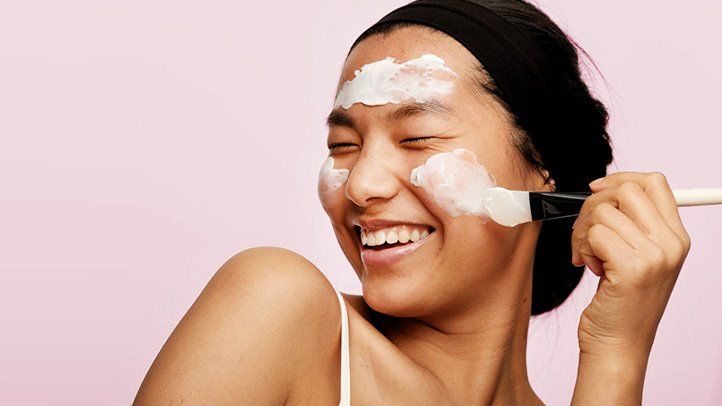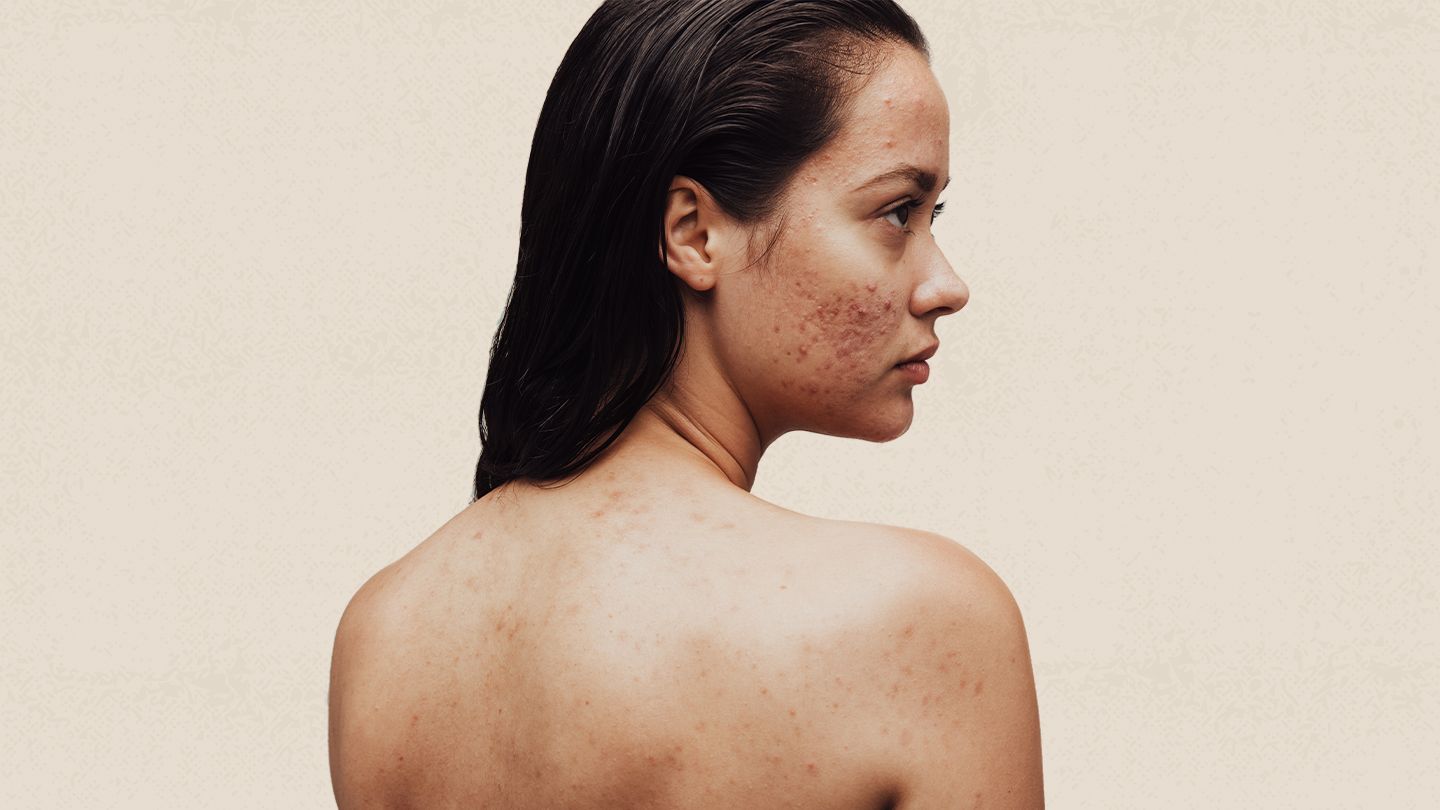Understanding Itchy Acne
Acne is a common skin condition that affects people of all ages. The trademark pimples and blemishes appear when dead skin cells, oil, and bacteria clog hair follicles on the skin. This leads to inflammation and outbreaks. While acne is notoriously known for being painful, embarrassing, and frustrating, many people wonder why their acne is so itchy.
What Causes Itchy Acne?
There are a few reasons why acne can be itchy:
- Inflammation - Inflamed pimples and blemishes can cause skin irritation and itchiness. The swelling puts pressure on nerve endings.
- Bacterial infection - Bacteria getting trapped in clogged follicles can trigger immune responses. This causes inflammation and itching.
- Yeast overgrowth - An overproduction of yeast on the skin can cause itchy pimples.
- Stress and hormones - Stress leads to increased cortisol production which causes more oil production and inflammation. Hormone fluctuations also increase acne.
- Harsh skincare products - Using irritating products like scrubs, toners, and cleansers can damage skin and make acne worse.
- Skin conditions - Underlying issues like eczema or psoriasis can also lead to acne and skin irritation.
Acne vs Other Skin Conditions
It's important to understand that sometimes itchy pimples may not be acne at all. Other possible skin conditions that can look like acne include:
- Folliculitis - inflammation of the hair follicles from bacteria, yeast, or blockages.
- Keratosis pilaris - genetic condition causing rough, bumpy patches and plugged hair follicles.
- Pityrosporum folliculitis - acne-like breakouts caused by a yeast infection in the hair follicles.
- Skin lesions - benign raised bumps on the skin from infections, injuries, or blocked oil gland ducts.
Getting Relief from Itchy Breakouts
Dealing with itchy, inflamed acne can be extremely frustrating. The urge to pick and scratch can worsen the problem. Here are some effective tips to manage irritable acne discomfort:
Avoid Touching and Picking
As tempting as it might be, avoid touching, squeezing or picking at pimples. This can introduce more bacteria, spread inflammation, and delay healing. Picking can also lead to permanent acne scarring which is far more difficult to treat than a breakout.
Use Gentler Skincare
Harsh acne products with ingredients like alcohol, sulfur, and benzoyl peroxide can sting and worsen irritation. Switch to gentle cleansers with soothing botanical ingredients like aloe, chamomile, green tea, calendula, and oatmeal. Use lukewarm instead of hot water as well.
Apply a Cold Compress
A cold compress helps reduce inflammation and eases itching by numbing irritated nerves on the skin. Wrap an ice cube or chilled spoon in a soft cloth. Apply to breakouts for 5-10 minutes at a time. The cold temperature constricts blood vessels and reduces swelling.
Take Antihistamines
Oral antihistamines like Claritin (loratadine) or Benadryl (diphenhydramine) block the body's histamine response and reduce inflammation. Histamine is released by the immune system during a reaction which leads to swelling, redness, and itching.
Use Topical Hydrocortisone
1% hydrocortisone cream available over-the-counter helps temporarily relieve itchy acne bumps. Hydrocortisone is an anti-inflammatory corticosteroid that decreases swelling. Use sparingly for short periods to avoid thinning skin over time.
Apply Tea Tree Oil
Tea tree oil has natural antifungal and antibacterial properties ideal for acne-prone skin. It's less harsh than benzoyl peroxide for sensitive or irritated breakouts. Mix a few drops with a carrier oil before dabbing onto blemishes. The cooling effect helps decrease itching.
Take Oral Antibiotics or Isotretinoin
For moderate to severe acne cases, see a dermatologist about prescription oral antibiotics or isotretinoin. Antibiotics reduce bacteria and skin infection while isotretinoin addresses the underlying causes of acne inflammation. Though strong, these medications are quite effective.
Preventing Future Itchy Breakouts
While itchy pimples sometimes can't be avoided, adjusting skin care and lifestyle habits can help prevent frequent flareups. Here are some tips:
Establish a Solid Skincare Routine
Cleansing skin properly morning and evening removes excess oil, bacteria, dead skin and debris that clog pores. Use a salicylic acid or glycolic acid exfoliant 1-2 times a week to keep pores clear. Acne spot treatments can be applied to individual pimples as well.
Moisturize Regularly
Many people overlook properly moisturizing acne-prone skin which actually triggers more oil production. Hydrating the skin with a lightweight, oil-free moisturizer balances oil glands and prevents overcompensation. Well-moisturized skin leads to less clogged pores and breakouts.
Avoid Touching Your Face
Try your best not to rest your face in your hands or pick at existing pimples. This transfers bacteria onto skin which can spread infection leading to more severe acne breakouts. Additionally, any pressure
FAQs
Why is my acne itchy?
Acne can be itchy due to inflammation, bacterial infection, yeast overgrowth, stress hormones, harsh skincare products, or underlying conditions like eczema. The irritation puts pressure on nerve endings.
Should I pop itchy pimples?
No, you should never pop pimples as it can increase inflammation and lead to infection or permanent acne scarring. The urge can be tempting but picking delays healing.
What is the fastest way to stop acne itching?
Applying a cold compress wrapped around an ice cube provides quick relief by reducing inflammation and numbing irritated skin. Oral antihistamines also rapidly block your body's histamine response.
How can I prevent breakouts from itching?
Establishing solid cleansing and moisturizing habits keeps pores clear and oil production balanced. Managing stress levels, not touching your face, and eating a skin-healthy diet prevents the inflammation that causes itchy acne.
Disclaimer: This article is for informational purposes only and does not constitute medical advice. Always consult with a healthcare professional before starting any new treatment regimen.
Related Coverage
Wondering what really works when looking at over-the-counter acne creams? We break down the most effective medicated cream ingredients, formulations, tips for use, and complementary lifestyle habits....
Soothe acne-prone skin with these natural remedies and ingredients like tea tree oil, honey, aloe vera, green tea, and witch hazel. Discover the best natural acne products for a clear, healthy complexion....
Discover the power of natural oils to diminish acne scars. Explore the best oils for acne scarring, including rosehip seed, jojoba, argan, and tamanu, to promote healing and rejuvenate your skin....
Try a gentle hormonal acne treatment you can do at home, with proven actives, natural options, and lifestyle tips for clear skin....
Cysts and pimples have distinct differences in their causes, appearance, pain levels, and treatment methods. Learn how to identify and manage cystic acne....
Explore the anatomy of the double bum crease, causes of an exaggerated crease, and treatments like exercise, weight management, and posture improvement to reduce its appearance....
Fungal acne is a skin condition caused by yeast overgrowth on the face. Learn what causes it, symptoms to spot, and effective anti-fungal treatment methods....
Acne can leave deep physical and emotional scarring. Learn how to cope with the shame and rebuild your self-esteem after years of struggling with bad skin....
Some report acne breakouts when taking ashwagandha supplements. Learn the theories behind ashwagandha causing acne and proactive steps to reduce skin irritation....
The surface of healthy natural nails should be smooth, evenly shaped, and uniform in thickness and color. Look for a clear surface with a pale lunula and pink nail bed....






